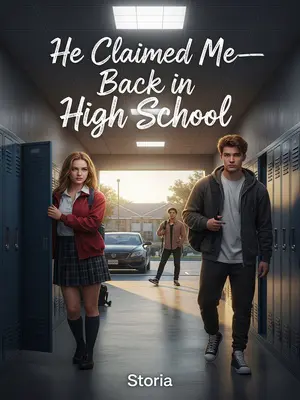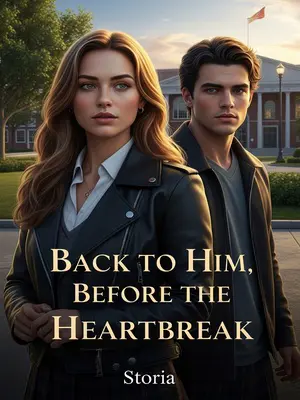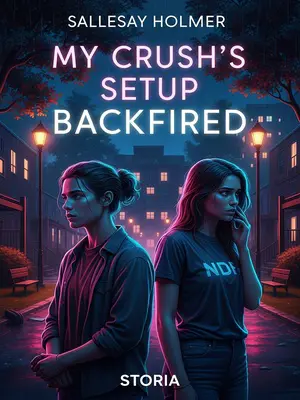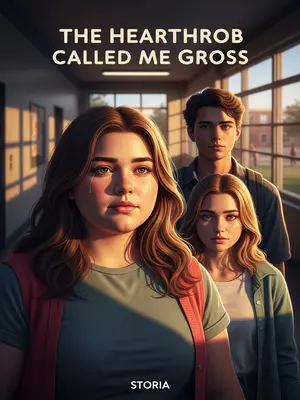Chapter 6: Classroom Survival and Christmas Miracles
There was a time when Derek studied hard, but after a while, he slacked off—he was just too lazy.
He’d show up late to homeroom, hair tousled, grinning like he owned the place. I’d roll my eyes, but I still passed him my notes under the desk.
I still copied notes for him every day, made my own notes in class, and copied his after class. Sometimes, when I had a moment, I’d gnaw on a dinner roll and read a book—I kept several rolls in my drawer. I’d eat some when I was hungry. Back then, I wasn’t the only one who was hungry—other classmates got hungry too.
The classroom always smelled faintly of bread, chalk dust, and teenage sweat. We swapped snacks like baseball cards—half a granola bar for a fruit roll-up, a cheese stick for a handful of peanuts. Sometimes, the roll came back as a handful of Goldfish crackers or a Reese’s cup.
Breakfast was at seven, lunch at noon, but we were all growing, and many of us got hungry by ten. The school didn’t bake many rolls, so sometimes, when I ate, Derek would ask for a piece, then the person in front would want some, then the person behind.
It became an unspoken rule—snack time before the bell, everyone sharing what little they had. We pretended it was a feast, laughing at our meager supplies.
Eventually, it became a routine: I’d break off a piece and pass the rest forward. By the time it made its way back to me, it would have turned into a few spicy chips or half a packet of instant ramen.
I loved the surprise—never knowing what would return. It was like a trust exercise, the kind only hungry kids understand.
High school life was busy—busy with homework, endless practice books, and tests. Time flew by, and before I knew it, the first semester of high school was over.
The days blurred together: pop quizzes, football games, cold walks home under the streetlights. We survived on caffeine and hope, counting down the days to the next break.
Even though it was almost Christmas, I still couldn’t go home. I didn’t want to fight with my mom, but I wanted to keep going to school. I was young but stubborn—I believed that as long as I kept studying, my life wouldn’t just be about working.
I’d watch the other girls giggling about holiday plans, hugging their parents in the parking lot, and I’d tell myself it was worth it, even if my heart ached.
I didn’t go home for Christmas. Later, a factory that was rushing orders was so short-staffed that they let me work—twelve hours a day, forty bucks per day. I worked twenty days and earned $800.
The factory was loud, the air thick with machine oil and the faint jingle of "Jingle Bell Rock" from someone’s battered radio. My fingers were sore, but I counted every dollar with pride. The boss, Mr. Jennings, slipped me an extra twenty on Christmas Eve, muttering, "Don't tell the others."
On Christmas Eve, the factory closed. Derek came to pick me up in his old pickup truck. We circled half the city, stopping by the river at the city’s edge, where thick ice covered the water. Some people were skating, others set off fireworks. Even though daytime fireworks weren’t very bright, they were still beautiful.
We huddled in the truck bed, wrapped in borrowed blankets, watching kids slip and slide across the ice. Derek passed me a thermos of cocoa, his breath visible in the freezing air.
We played for a long time, until it got dark and all the shops closed. Derek took me to his family’s old house for Christmas Eve. His family was huge—seventy or eighty people gathered together.
The house was packed, cousins jostling in the hallway, the kitchen overflowing with food and laughter. Platters of ham, sweet potato casserole, and cranberry sauce covered every inch of the table. I clung to Derek’s sleeve, overwhelmed but grateful.
There were six tables for Christmas dinner. I blended into the crowd; no one paid much attention to me. Later, when it was time for the family toast, all the kids lined up, and Derek pressed me forward too.
I shuffled to the front, cheeks burning, as Derek’s great-aunt pinched my arm and called me "sweetie." I mumbled thanks, my hands sweating as I clutched my napkin.
The adults handed out Visa gift cards with snowflakes on them, slipped into red-and-green envelopes, and I got some as well. In the dim living room, someone looked at me, hesitated, but still gave me a card.
I tried to refuse, but Derek nudged me, whispering, "Just say thank you." So I did, stuffing the cards into my pocket and glancing around for escape.
Later, I overheard someone ask, “That little girl looks unfamiliar. Whose kid is she?”
“Oh, Derek brought her. Probably his mom’s cousin’s kid.”
The lie stung, but I bit my lip and smiled anyway. At least I belonged for the night.
I wasn’t anyone’s cousin. My face turned red. Clutching a handful of gift cards, I ran to give them to Derek.
I found him in the backyard, sparklers in hand, eyes wide with surprise when I dumped the cards in his lap.
He was fiddling with fireworks and jumped in surprise. “Melissa, why are you giving me these?”
He tried to hand them back, but I shook my head. I didn’t want to take anything I hadn’t earned.
“That’s your family’s Christmas money. I can’t take it.”
He snorted, stuffing the cards back in my pocket. “If they give it to you, just take it. Step back, I’m about to light these.”
He struck a match, grinning as he set off a string of firecrackers. The noise echoed off the frozen river, lights sparkling overhead.
First came firecrackers, then a burst of brilliant fireworks. Everyone gathered around.
The air smelled of smoke and pine needles, kids laughing as the sky lit up with red and gold. I closed my eyes, wishing this night would never end.
Derek grabbed my collar and pulled me back a little. “Melissa, make a wish! The new year’s here.”
As the sky exploded in color and Derek’s laughter echoed beside me, I made a wish I’d never dared say out loud: Don’t let this end. Not yet.













